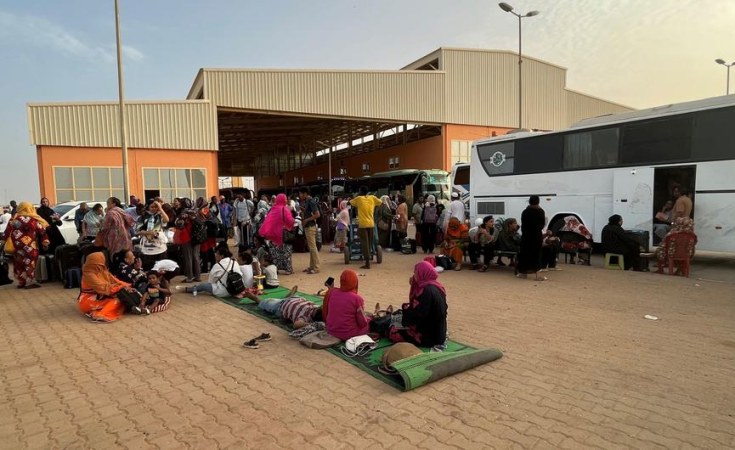Khartoum — As the fighting in Khartoum entered its 22nd day, the remaining civilians in the city described brutal conditions. Many had nearly run out of supplies, markets remained shuttered and imports were no longer entering the country.
Yousif Ahmed is a store owner and merchant in the city and described the dire situation. He said the conditions are "unstable," that people might resort to "stealing" just to survive. "We may have to steal the day's sustenance in the coming days, everything is gone now, we are suffering greatly from this disaster, all people may have to steal in a week," he told VOA.
Ahmed said insecurity in the city also means that businesses have to find ways to protect their goods to avoid being targeted.
"For me, as a grocer, the situation is very bad. There are no goods, and we feel insecure because we could be looted at any moment. Some merchants now store goods in their homes."
According to the U.N., nearly 19 million Sudanese could suffer from food insecurity because of to the conflict. Advocates said $445 million is needed to support refugees fleeing Sudan and to provide aid in the next six months.
Mohammed Hassan Abu Shama, another Khartoum resident said living conditions in the city have deteriorated dramatically.
"People have begun to store food supplies and most stores are lacking basic necessities," he told VOA. "The price of flour is very expensive, and the price of bread has doubled. People want to travel outside Khartoum, but tickets are also expensive, whether they are in the states or outside Sudan. This war destroyed many things, we hope things will be better."
But amid the instability, and in the absence of a functioning government and relief organizations, Sudanese in some neighborhoods of Khartoum organized voluntary civil initiatives to help alleviate the crisis for the poorest citizens.
Hassan Mohammed Ahmed Salih from a neighborhood called Jabra explained how the community is stepping up to help feed those in need.
"We obtained quantities of flour from some agents and distributed it to a large number of poor citizens in the neighborhood and solved the problem of flour shortages," he said.
Ahmed Salih said the community also comes together to help in different areas, including providing security and reaching out to people who need medical attention.
"We will form three committees concerned with the health situation, the living situation, and the security situation. We will work to collect information, and in the same way we addressed the flour shortage, we will try to provide health and medical services for all patients in the neighborhood by bringing in doctors and medicine. If we are not able, we will offer moral support in these circumstances."
Residents say the situation is getting worse each day. They fear the longer the markets are closed and relief supplies are unable to reach those trapped in the city, the greater the human suffering will be.
This story originated in VOA's English to Africa Service.


